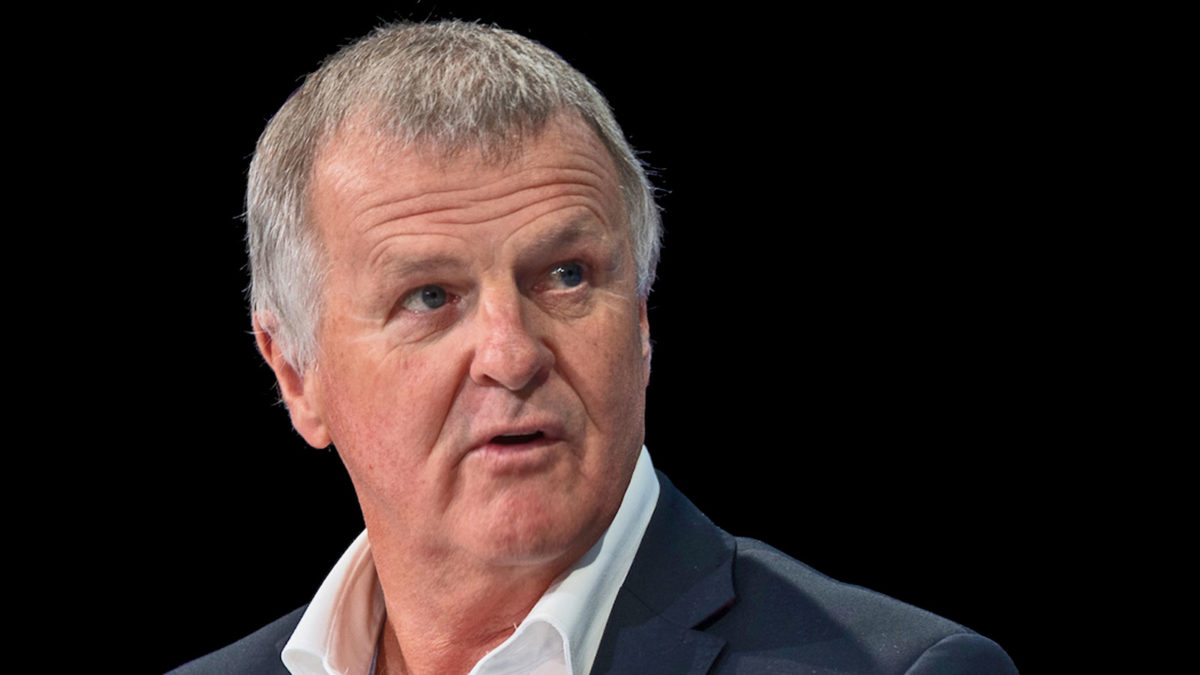CMSF keeps the fire burning for a new audience
The rhetoric was similar, though not quite as fiery. But the audience was different. A lot has changed since the first CMSF, held symbolically, in Wollongong.
In 1990, Wollongong, NSW, was still referred to as the ‘steel city’. BHP had only begun to shut down its furnaces in Australia. Labor was in power federally and the new ‘union’ funds were trying to make their way in the world.
CMSF, the brainchild of Garry Weaven (pictured last week at CMSF 2021 in Adelaide) and the late Mavis Robertson, was a statement of defiance to the superannuation establishment as much as an education and discussion forum: “We are here and we mean business,” is what the conference said.
A year later, the second and last year for the conference to have to squeeze into Wollongong’s stretched accommodation choices – one four-star hotel and the rest very much the rest – attendees were addressed by the Treasurer, Paul Keating.
His opening line went something like: “It’s so nice to come to a superannuation conference where everyone is not standing around clutching warm gins and tonic.”
In 1991, Australia was just a year away from reaching Labor’s goal of achieving near-universal super; a year away from the introduction of the Superannuation Guarantee. All the deal making had been done, Keating would later that year oust Bob Hawke and become Prime Minister, at which point the SG was all-but guaranteed to get underway. Not that Hawke was against it, but Keating believed he was the true guiding light.
Industry funds showed their strength and solidarity and subsequently embarked on a period of remarkable growth and rising influence. They aligned with other profit-for-member, mainly defined contribution, funds and set about controlling their own destiny. The thought of them being ‘union’ funds was largely forgotten as permanent alliances were forged with all the major employer groups.
ASFA had been controlled at board and committee levels by the actuarial consulting firms of Towers Perrin (formerly Towers Perrin Forster & Crosby), Mercer (formerly Mercer Campbell Cook & Knight) and Watson Wyatt (formerly Wyatt & Co and R. Watson & Sons). They defended their patch of defined benefit, primarily corporate and government, funds. ASFA, now ‘the voice of super’, was then largely the voice of actuaries who had run super prior to the birth of industry funds. The relationship between the two groups was, at first, strained.
With the slow demise of defined benefit funds across the corporate and government sectors, actuaries lost their concentrated power base and, instead, spread out throughout the burgeoning super industry. ASFA opened its membership doors and board representation to industry funds after a change of executive.
You would like to think that the two groups lived happily ever after as the industry grew and grew. And they did with each other, but the bipartisanship over super among the Coalition and Labor governments did not last.
Attendees at the CMSF conference in Adelaide (May 18-19) would be under no misapprehension that there was still a war to be fought to retain the vision of the first CMSF. It was just like the first CMSF, but different.
In a plenary session on the first day of the conference, Garry Weaven, now retired, Sally McManus, the secretary of the ACTU, Eva Scheerlinck, the chief executive of AIST and Denita Wawn, the chief executive of employer group Master Builders Australia and Cbus director, addressed: “The super big picture: Politics, Progress and Possibilities”.
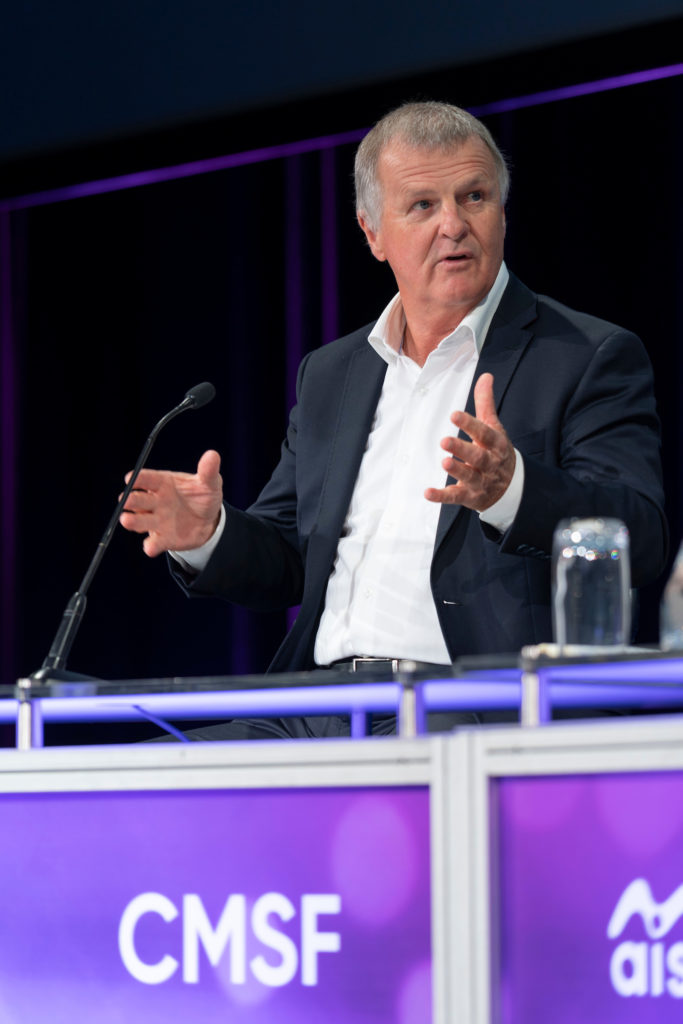
McManus warned that funds should not assume that the battle over the rise of SG was over, following the move announced in the budget to continue on the legislative path to 12 per cent, starting with 10 per cent from July 1, as promised.
“Silence is a big mistake. If we vacate that space, other people will fill it,” she said. “We learned from workers rights, over Work Choices (the former Coalition industrial relations policy), that if they attack it, it will hurt them politically. It has to be political poison for them to go after industry super.”
Denita Wawn said, with respect to the next moves towards a 12 per cent SG, that she had been around politics for long enough to know that you couldn’t take anything for granted. She asked: “How is 12 per cent going to play out in practice? How many people will get an increase in their super but a reduction in their take-home pay?”
On the continual changing detail of super, with proposed exemptions and alternative uses for members’ money, Wawn said: “As directors, we know that the sole purpose is around retirement incomes. But there are exceptions to the rule and the system is sending mixed signals. Should there be any exceptions in the first place? The super system is based on the premise that most people will own their own home by retirement.”
Weaven said: “Most people run out of super before they die. They are not passing it on. That’s a lie invented by Tim Wilson (Coalition MP and economics committee chair) or one of those characters because it suits their own purpose.”
Maintaining the culture of profit-for-member funds was becoming more difficult as they get bigger, Weaven said. “Inevitably there will be a clash of cultures. A lot of executives now come from a financial services background… It’s the job of the boards to drive the culture. It’s becoming harder but the resources are there. If employer organisations were a little more forthright it would be easier.”
Wawn did not disagree that employer representatives on boards tended to stay out of the political debates. “Many employers think that it’s the role of super funds to do the advocacy and not that of the industry body. I think Garry’s right. It’s something to think about. But many employer directors are not happy with the role of advocacy… There, I said it.”
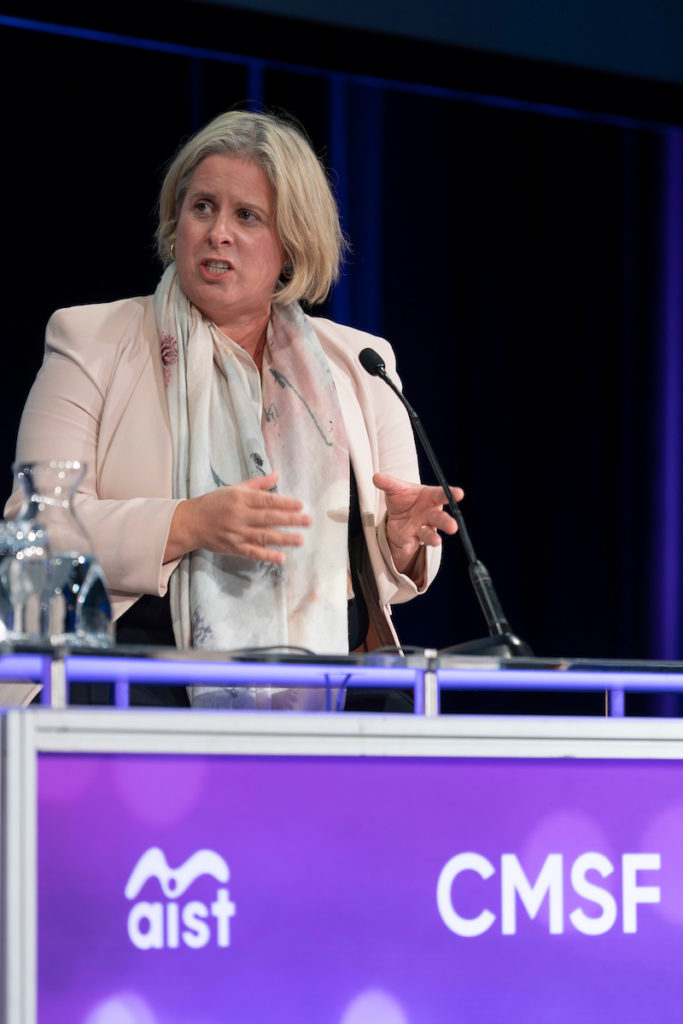
To have a proper constructive discussion you have to trust the other side, Weaven said. The onus was now on the Government to rebuild the trust.
Asked to nominate what they think will be the biggest challenge, something dominating discussions, about this time next year, the panelists replied:
- Sally McManus: maintaining the compulsory nature of super
- Denita Wawn: stapling (the controversial proposal in the Government’s Your Future Your Super Bill)
- Eva Scheerlinck: compulsion and preservation under attack, and
- Garry Weaven: Housing and its affordability.
Weaven said that housing was a potential Achilles heel for super. “I think the industry hasn’t tried hard enough to allow the investment for the long term in housing. The penny has dropped that we need to address it,” he said. “I think it’s been a bit of a failure of the industry to address housing, personally.”
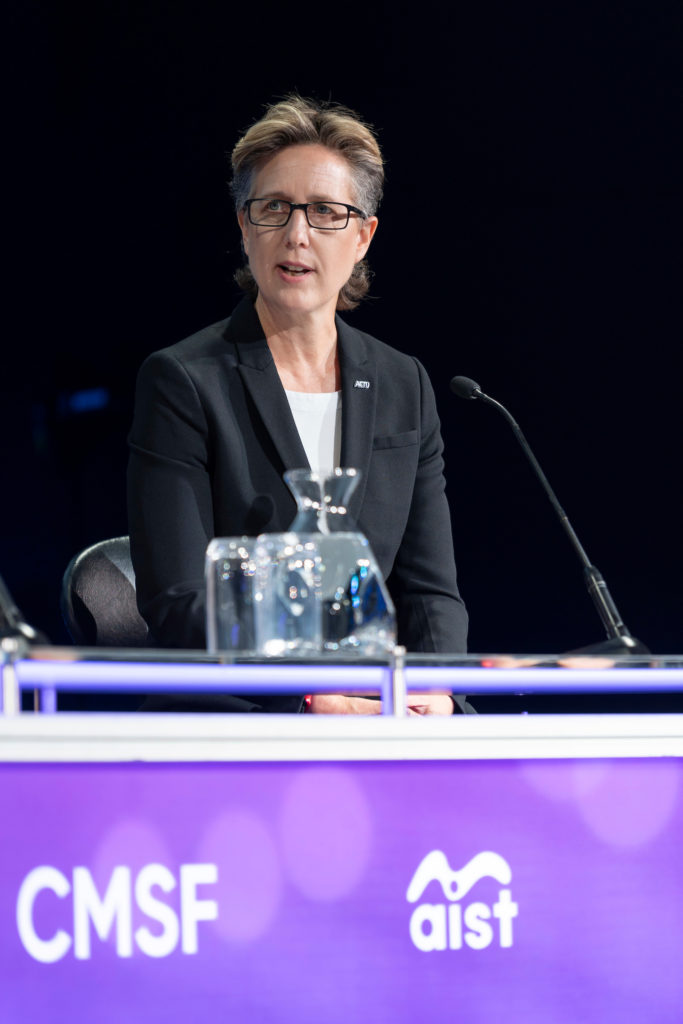
AIST annual general meeting
AIST held its annual meeting of members in a closed session at CMSF with the annual report highlighting the difficulties – and achievements – of the past 12 months.
In their joint letter to members in the report, Eva Scheerlinck, the chief executive, and Catherine Bolger, the chair, said AIST was involved from the launch of the ERS in April, liaising with the industry, regulators and government.
They said the association’s message to members was empathetic but cautious, suggesting members should be advised to exhaust all other income support measures available to them before applying for a withdrawal. AIST’s 43 Australian member funds paid about 70 per cent of the $36 billion withdrawn during the two phases of the scheme (there are five Pacific nations fund members).
AIST continued all its planned advocacy actions during the year, including completion of its 86-page submission to the Retirement Income Review.
On the financial side, the association has started a restructure involving removal of several staff positions and creation of new ones, the report says.
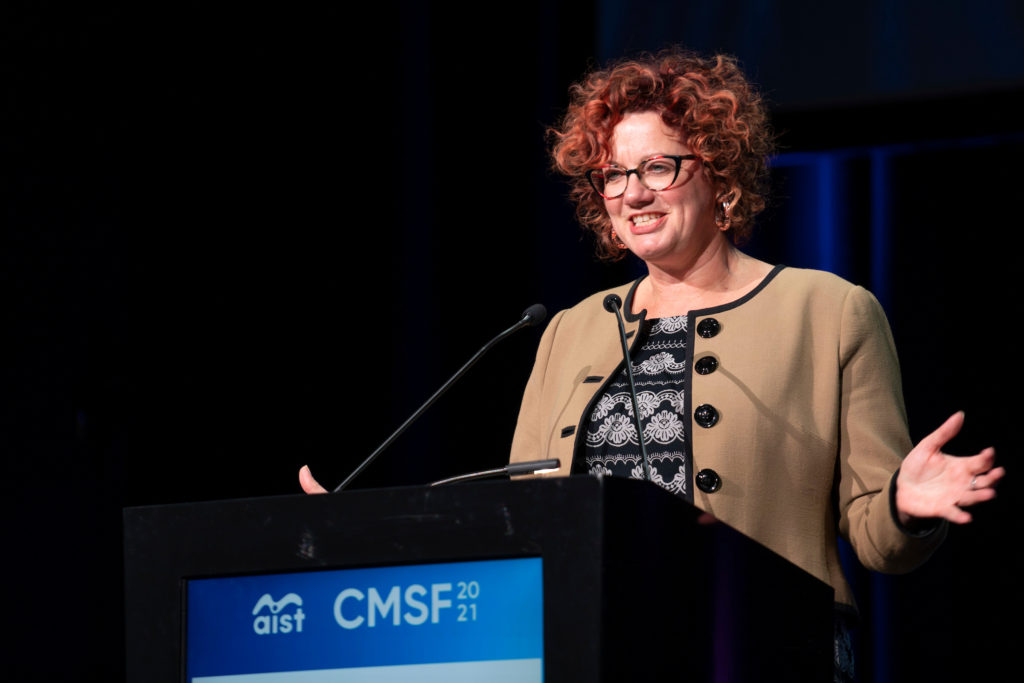
While JobKeeper contributed $1.2 million during the year to mitigate operational losses, the report estimates that the combined revenuer impact of cancelled and postponed events was more than $3.5 million for 2020. These included:
- The cancellation of AIST’s flagship CMSF conference scheduled to be held in Adelaide in March 2020 and the transition to a virtual delivery of the event
- The postponement of the Global Dialogue event due to be held in Toronto, Canada in May 2021
- The cancellation of numerous smaller events scheduled to be held during the 2020, and
- The cancellation of all in-person professional development courses.
The CMSF held last week was considerably down on physical attendees than in pre-covid times. The association’s estimate of 600 looked generous. The overall loss for the year was a modest $113,000 but new revenue sources will be needed unless the physical conference business recovers to its previous levels.
Event revenue usually contributes more than half of AIST’s total but this fell from $4.8 million (of total revenue of $8.1 million) in 2019 to $2.9 million (out of $7.1 million). CMSF is the biggest single revenue spinner for the organisation.
The problem is that online events, which are much less expensive to produce, do not attract the same level of sponsorship and paid attendance as physical events. Online events have other benefits, too, such as greater accessibility to overseas speakers and little-to-no travel expenses for delegates or organisers. Advocacy, on the other hand, while arguably the most important function of the association, produces no revenue by itself.
ASFA, which has a smaller core membership base than AIST, is probably in much the same position. Both conferences are expensive for members and non-members to attend. With CMSF it is now just over $4,000 for non-members. This price point may preclude younger potential attendees who tend to be less senior in their organisations.
It is the younger attendees who are more likely to favour virtual events too. Most of the editorial coverage of this year’s event, for instance, was provided by journalists working remotely with access to all sessions for free online ($2,150 for non-members, $1,800 for members).
It should be noted that Women in Super recognised the importance of providing a younger person’s perspective at its annual CMSF breakfast, with three young women from the industry interviewed about their experiences.
All CMSF photos supplied by Stephen Pam.



